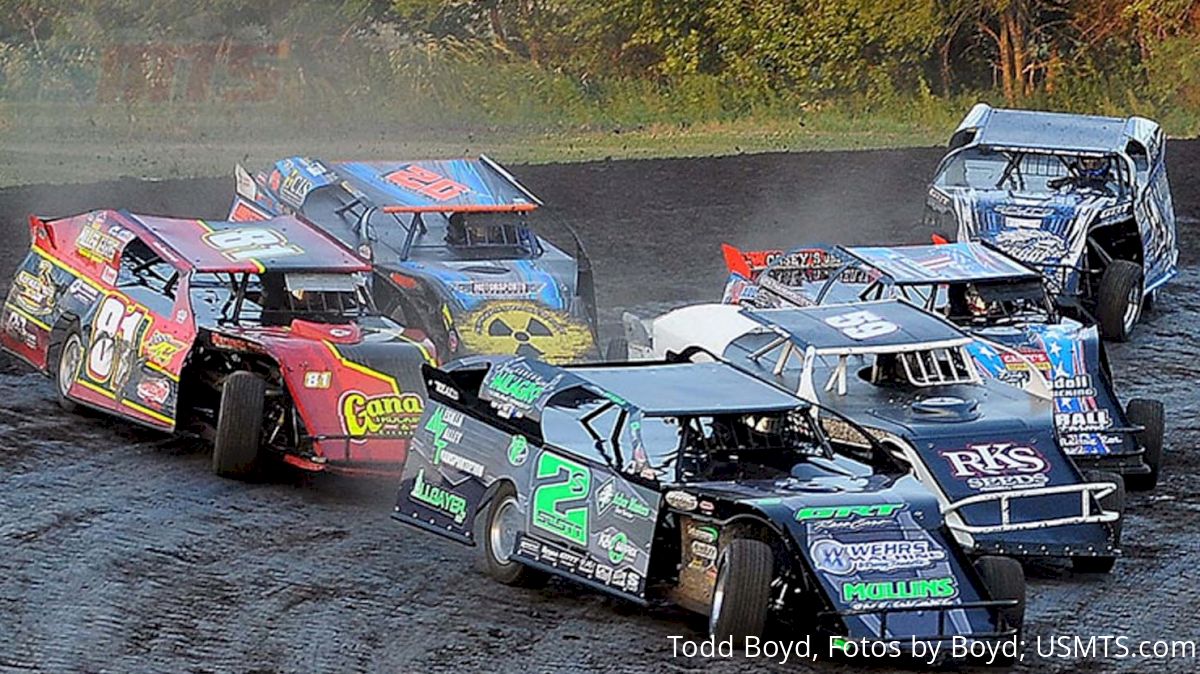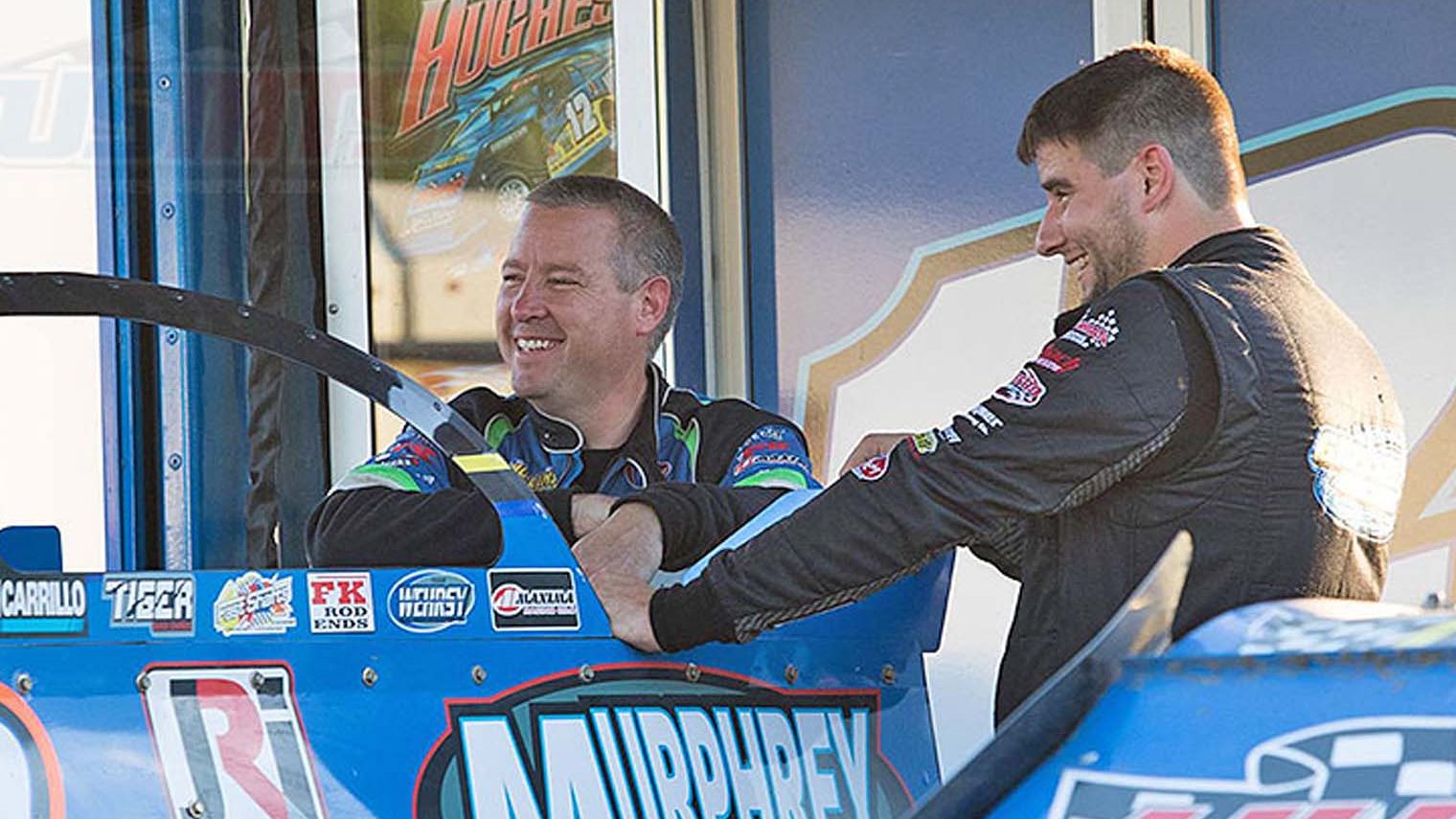Finding Help For Modified Racing
Finding Help For Modified Racing
Finding crewmembers to work on Modifieds is an easier task due to the geographic nature of running the series.

By Jonathon Masters
In our first look at national Modified touring, we discussed the costs associated with running a full season.
As with our earlier breakdown of Dirt Late Model racing, we left out a very important component any team will need to compete on a nightly basis. This was because the complexities of fielding a national team are enormous and require more than one column to explain.
This week, let's take this time to delve into what it takes to find good modified help and the advantages national Modified teams have over Late Models in regard to finding those wrench-turning, truck-driving, tire-mounting saints of the road.
The major factors from our previous discussion about Late Models are still relevant. The decreased emphasis on mechanical skills in today's education system hinders racers in their search for help. The saving grace that national Modified teams have, however, has to do with the location in which most of these teams and racers reside.
You see, the undisputed capital of Modified racing in this country is the Great Plains and Upper Midwest. The Mississippi River might as well offer complimentary barge travel to teams traveling up and down the center of the country during the season.
It is unbelievable how much Modified racing happens in this region. The economic makeup helps teams locate good help and a lot of it.
The reasons can be boiled down to a few key factors.
The main employer in most of this region is America's fantastic agricultural industry. And that is a major benefit to racing in any region. When it comes to finding help, a large base of agricultural workers is a godsend.

(Charlie Weber, Fotos by Fizzle; USMTS.com)
One of the big items that hampers a lot of racers in finding help is the lack of skills. When it comes to an agricultural community, this is far less of a problem. Many of these workers are extremely skilled mechanics and engineers. They spend their workdays fixing the heavy equipment and tools used to feed the world. A lot of them have plenty of hours invested fixing everything from field equipment to that old Ford beater they use to drive down gravel roads. This lends itself well to working on race cars. One benefit is that crew members can go right into fixing a problem with little to no instruction.
The next benefit that a large agriculture workforce brings is the blessing of time. People who do not know the farming world well might not be aware of the peak and non-peak work times. The busiest times for farming are the spring and fall. This lines up fantastically for race teams because the heaviest travel time is the mid-summer. This leads to plenty of available help during busiest time of year. Not to say there isn't work to be done on farms in the dead of summer, but it's a lot easier for these workers to get to the track during that time of year.
We discussed in our column on how Modifieds conquered the world that modified racing has become engrained in the culture of the region. This too is thanks to it being a strong agricultural region. If you live in this area, go to the track this weekend and walk through the pits. Ask crewmen, car owners, drivers, and sponsors what they do when they are not at the track. The answer that will probably top the list is some form of agricultural work.
Racing Modifieds is a fantastic pastime for many of these racers. It brings a workforce and friends together while giving them something to look forward to every year. They all love to tinker, and there is nothing better to tinker on than something you can go compete with at the track.
- Jonathon Masters has a lifelong connection with dirt racing. His family has owned and operated MasterSbilt Race Cars manufacturing dirt late model chassis for 35 years. He attended college in North Carolina for motor sports management and has written for various industry publications. Jonathon was an account executive at The International Motorsports Industry Show, founder of the Heartland Auto Racing Show, and has been a racing industry professional for over a decade.
How Dirt Modifieds Conquered The World
Why Dirt Late Models Look That Way
Turn Your Child Into A Dirt Superstar
Get The Races To Run On Time
Ryan Blaney Fits Best With Penske
The Iconic Brickyard 400 Needs A Boost
It's Time For NASCAR To Get Dirty
Big Changes Are Coming For NASCAR
In our first look at national Modified touring, we discussed the costs associated with running a full season.
As with our earlier breakdown of Dirt Late Model racing, we left out a very important component any team will need to compete on a nightly basis. This was because the complexities of fielding a national team are enormous and require more than one column to explain.
This week, let's take this time to delve into what it takes to find good modified help and the advantages national Modified teams have over Late Models in regard to finding those wrench-turning, truck-driving, tire-mounting saints of the road.
The major factors from our previous discussion about Late Models are still relevant. The decreased emphasis on mechanical skills in today's education system hinders racers in their search for help. The saving grace that national Modified teams have, however, has to do with the location in which most of these teams and racers reside.
You see, the undisputed capital of Modified racing in this country is the Great Plains and Upper Midwest. The Mississippi River might as well offer complimentary barge travel to teams traveling up and down the center of the country during the season.
It is unbelievable how much Modified racing happens in this region. The economic makeup helps teams locate good help and a lot of it.
The reasons can be boiled down to a few key factors.
The main employer in most of this region is America's fantastic agricultural industry. And that is a major benefit to racing in any region. When it comes to finding help, a large base of agricultural workers is a godsend.

(Charlie Weber, Fotos by Fizzle; USMTS.com)
One of the big items that hampers a lot of racers in finding help is the lack of skills. When it comes to an agricultural community, this is far less of a problem. Many of these workers are extremely skilled mechanics and engineers. They spend their workdays fixing the heavy equipment and tools used to feed the world. A lot of them have plenty of hours invested fixing everything from field equipment to that old Ford beater they use to drive down gravel roads. This lends itself well to working on race cars. One benefit is that crew members can go right into fixing a problem with little to no instruction.
The next benefit that a large agriculture workforce brings is the blessing of time. People who do not know the farming world well might not be aware of the peak and non-peak work times. The busiest times for farming are the spring and fall. This lines up fantastically for race teams because the heaviest travel time is the mid-summer. This leads to plenty of available help during busiest time of year. Not to say there isn't work to be done on farms in the dead of summer, but it's a lot easier for these workers to get to the track during that time of year.
We discussed in our column on how Modifieds conquered the world that modified racing has become engrained in the culture of the region. This too is thanks to it being a strong agricultural region. If you live in this area, go to the track this weekend and walk through the pits. Ask crewmen, car owners, drivers, and sponsors what they do when they are not at the track. The answer that will probably top the list is some form of agricultural work.
Racing Modifieds is a fantastic pastime for many of these racers. It brings a workforce and friends together while giving them something to look forward to every year. They all love to tinker, and there is nothing better to tinker on than something you can go compete with at the track.
- Jonathon Masters has a lifelong connection with dirt racing. His family has owned and operated MasterSbilt Race Cars manufacturing dirt late model chassis for 35 years. He attended college in North Carolina for motor sports management and has written for various industry publications. Jonathon was an account executive at The International Motorsports Industry Show, founder of the Heartland Auto Racing Show, and has been a racing industry professional for over a decade.
Exclusive Content
Weekly Columns by Jonathon Masters
What Modifieds Cost To RunHow Dirt Modifieds Conquered The World
Why Dirt Late Models Look That Way
Turn Your Child Into A Dirt Superstar
Get The Races To Run On Time
Weekly Columns by JD Hellman
To Race In 2018, Kahne Must Find A SponsorRyan Blaney Fits Best With Penske
The Iconic Brickyard 400 Needs A Boost
It's Time For NASCAR To Get Dirty
Big Changes Are Coming For NASCAR